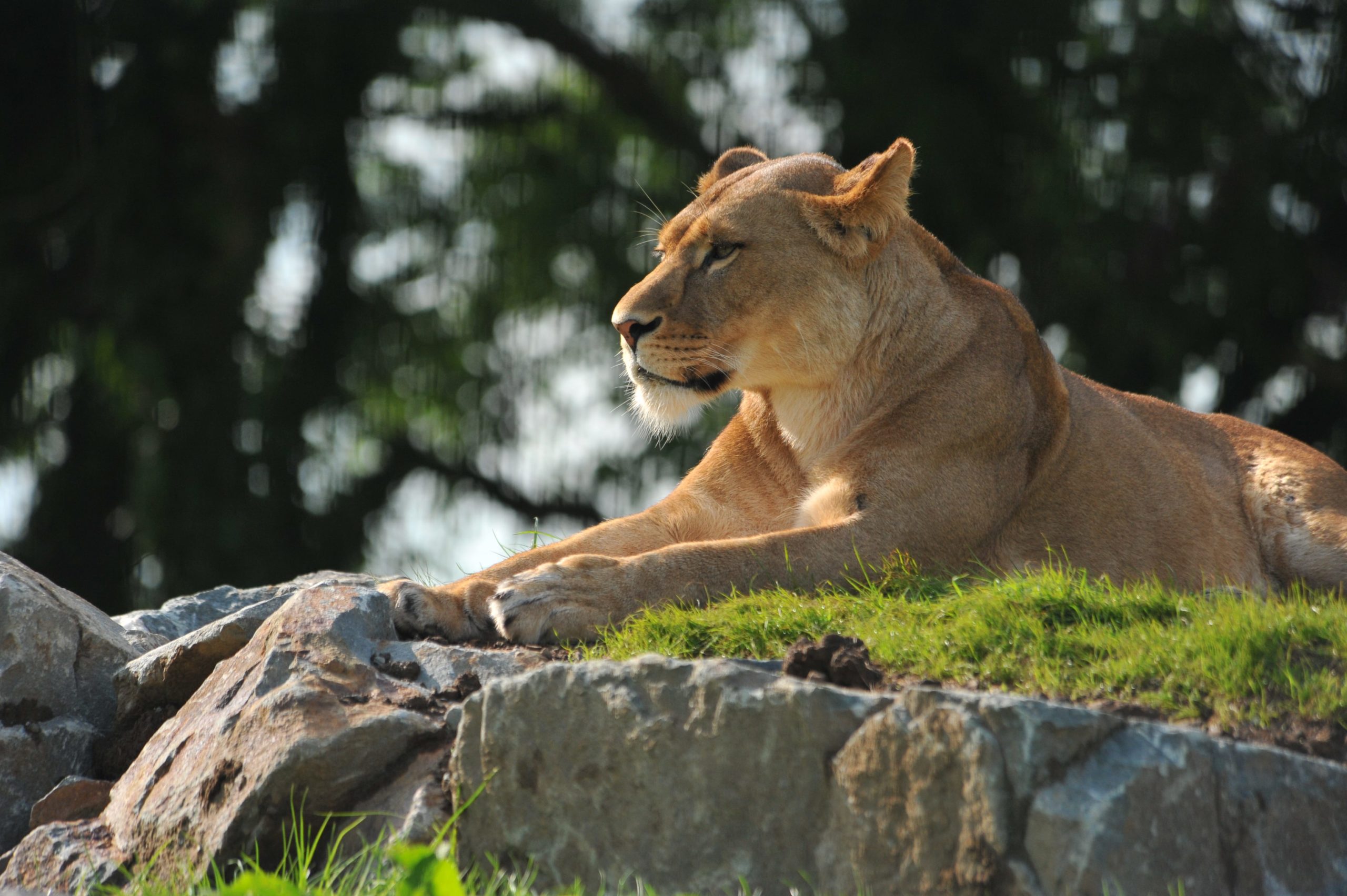

The African lion is bigger than the Asiatic lion and it’s the second largest big cat, after the tiger.
In the wild they live for between 10 and 14 years. You can see our family of lions in the Pride of Pembrokeshire enclosure.
The number of African lions in the wild is declining and they’re now thought to be at risk of extinction. Over the last ten years their numbers have gone down by 30%. The main threat facing African lions in the wild is being killed as part of organised hunts.
Latin name
Panthera leo
Class
Mammalia
Order
Carnivora
Family
Felidae
Where from
Sub-Saharan Africa
Conservation status
Vulnerable
Impress your friends with everything you know about lions!
African lions are mostly found in sub-Saharan Africa. They used to be found all over Africa but now they have mostly disappeared from North Africa and are at risk of extinction in West Africa. Lions live in savannahs and grasslands, where some cover and plenty of water can be found.
If lions are your favourite animal you can adopt a lion for a one off payment that includes a cuddly lion toy, an adoption certificate, a lion fact sheet and the name of the adopter displayed at the lion enclosure.
Lions hunt for food every few days. They will feed from their kill and then rest until they hunt again. We follow this pattern in zoos, as our lions have two “starve” days out of seven. They usually kill medium sized mammals, such as zebra, deer and wildebeest. They often eat animals which have been killed by another hunter, such as hyenas. At Folly Farm we feed our lions chunks of meat. We also give them whole dead animals to eat. It’s good for them to eat the whole animal, as the fur, skin and bones give their teeth a good clean. It also helps with ‘enrichment’, which means getting our animals to act as they would in the wild.
The name for a group of lions is a ‘pride’.
Both male and female lions roar. They usually start off with a few long, deep roars followed by shorter, faster ones. Lions also make other noises. They meow, hiss and snarl, like domestic cats, but louder.
There are five types of big cat – tiger, lion, jaguar, leopard and snow leopard.
The main two types of lion are the African and the Asian but there are thought to be eight in total. Here’s a list:
Lions are the laziest of all the big cats, and can sleep for 16-20 hours each day.
A lioness usually gives birth to between one and four lion babies. Our lioness Luna, had four female cubs.